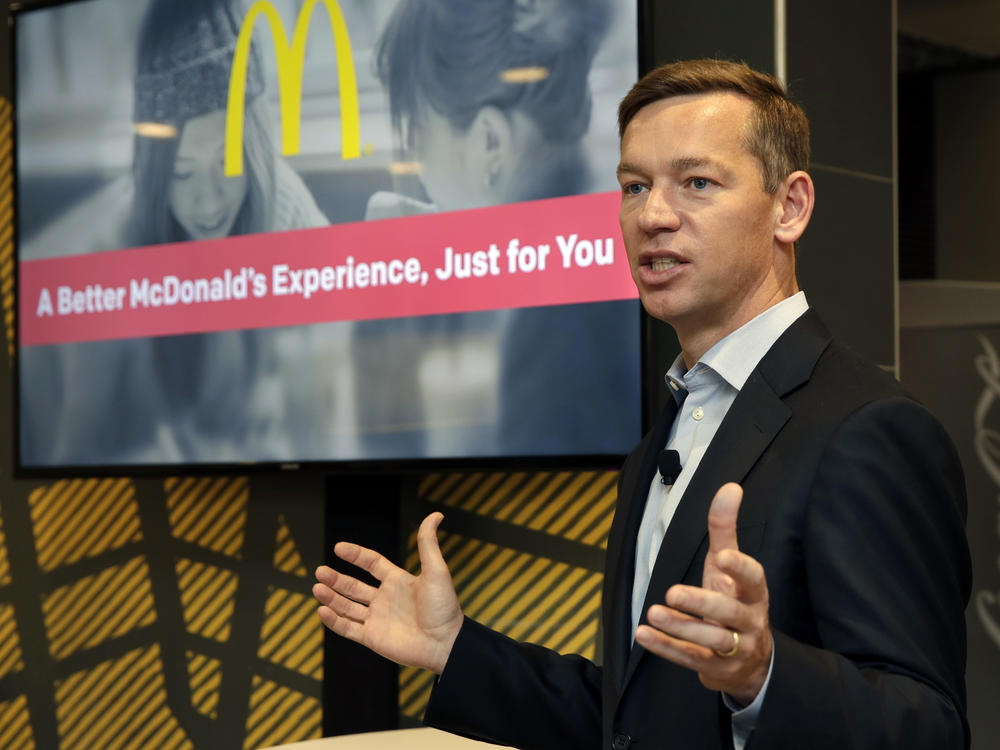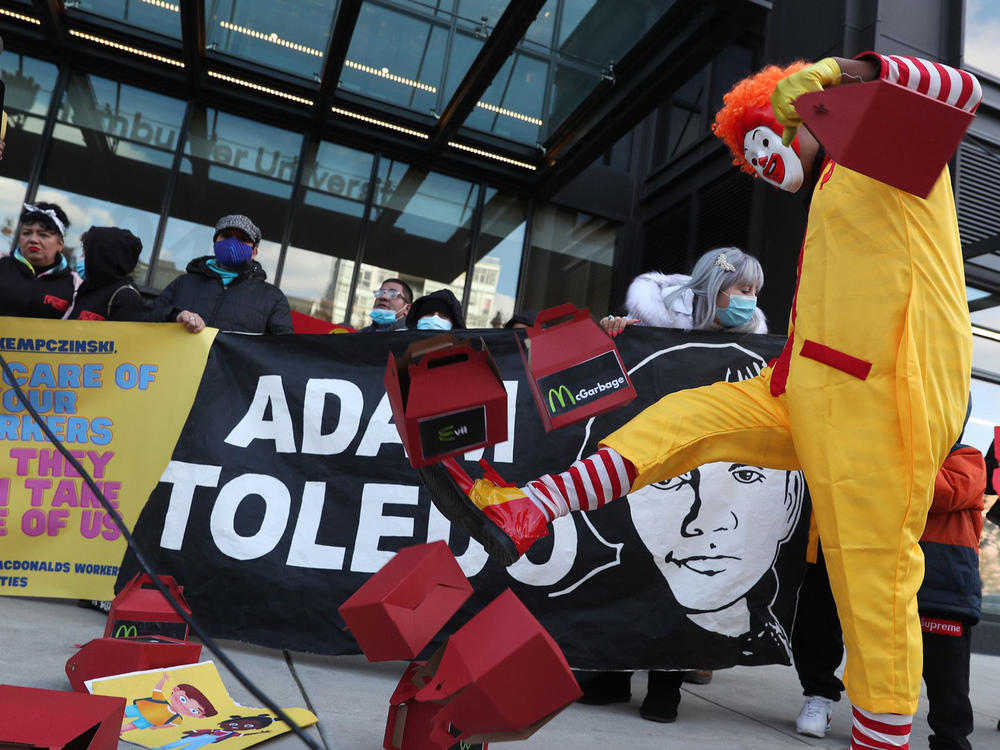Section Branding
Header Content
McDonald's CEO apologizes after saying 2 slain children were failed by their parents
Primary Content
McDonald's CEO Chris Kempczinski is facing backlash for comments he made in a text message to Chicago Mayor Lori Lightfoot, in which he appeared to blame the death of two Black and Latino children who were killed on the childrens' parents.
In his text to the mayor this past April, Kempczinski was discussing the deaths of Jaslyn Adams, a 7-year-old who was shot and killed while sitting in a car with her father in a McDonald's parking lot in Chicago, and Adam Toledo, a 13-year-old Latino boy killed by police in March. He called both deaths "tragic," but then said that in each case, "the parents failed those kids which I know is something you can't say. Even harder to fix."
The messages, revealed after an unnamed activist filed a public information request, were sent one day after Adams was killed.
Kempczinski has since apologized for his remarks.
"I have not walked in the shoes of Adam's or Jaslyn's family and so many others who are facing a very different reality," he said in a letter to employees. "Not taking the time to think about this from their viewpoint was wrong.
The letter was shared with NPR member station WBEZ. When asked by NPR to provide a copy, McDonald's said it had no comment.
Kempczinski also held a town hall with McDonald's staff on Monday, a source familiar confirmed to NPR. But no further details about the discussion were provided.
Activists are now pushing back against McDonald's
The criticism toward Kempczinski was swift after his comments were revealed last Monday.
Several groups that help fight for better working conditions for people of color, including Color of Change, One Fair Wage and Little Village Community Council, banded together and protested the company's headquarters in Chicago last week. They also also penned a letter to Kempczinski on Wednesday, calling his text, "ignorant, racist and unacceptable."
"You relied on lazy, outdated and racist stereotypes in order to uphold the status quo and avoid accountability for those in power," the groups wrote.
"As the leader of one of the world's largest private employers and most iconic brands, you have a responsibility to do so much better."
The CEO says he is working to correct his "very narrow worldview"
The controversy over Kempczinski's comments comes as McDonald's is facing questions on multiple fronts about its commitment to diversity and inclusion. The chain was one of the first in the nation to elevate Black restaurant owners, and earlier this year it moved to increase incentives for its executives to boost the number of women and people of color in its leadership ranks.
Yet many of those efforts have been overshadowed in recent months, as the company faces a pair of high-profile lawsuits alleging racial discrimination.
In one case, 52 Black former McDonald's franchisees accused the company of putting them in neighborhoods where sales were lower and costs to keep doors open were higher, leaving them to they make less money than their white counterparts. McDonald's has denied the allegations.
In another case, two companies owned by the media mogul Byron Allen argue that McDonald's discriminates against Black-owned businesses when it comes to its advertising spending — allegations that the chain also denies.
After more than a year of racial reckoning spurred by the murder of George Floyd and a pandemic that further revealed massive disparities for Black and Latino people, corporations — including McDonald's — have pledged efforts to fight systemic racism and improve on equity and inclusion.
But Kempczinski's comments have fueled criticism that the challenges facing McDonald's may be traced directly to his leadership — concerns he has sought to address in the firestorm over his text messages.
In a November 6 video viewed by Bloomberg and sent to McDonald's employees, suppliers and franchisees, Kempczinski apologized for his remarks, calling them "wrong," and saying, "I let you down, and I let myself down."
In the video, the CEO acknowledges that he has a "very narrow worldview" that he is working to address. When asked by NPR how Kempczinski plans to expand that worldview, McDonald's declined to comment.
Copyright 2021 NPR. To see more, visit https://www.npr.org.


